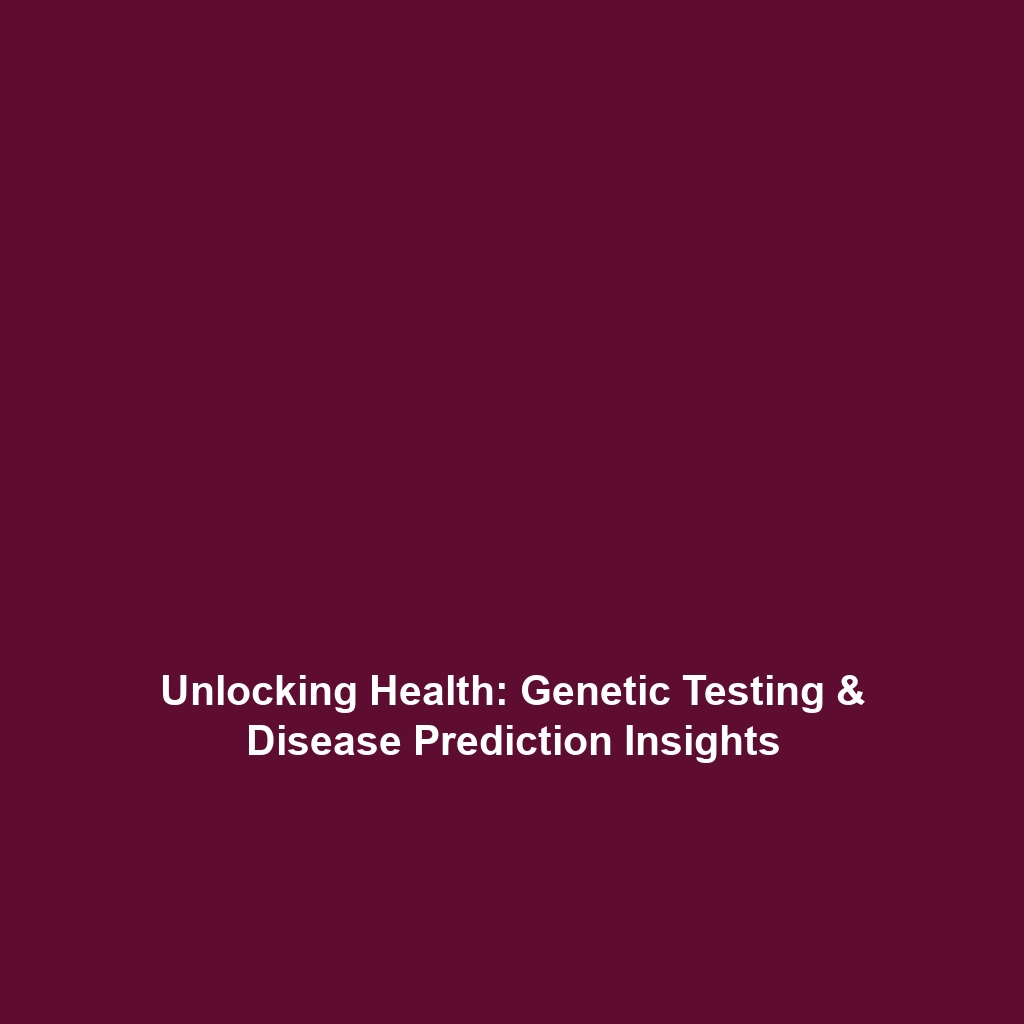Genetic Testing and Disease Prediction: Insights from the Human Genome Project
Introduction
Genetic testing and disease prediction have emerged as pivotal components in understanding human health, particularly following the advances made by the Human Genome Project. This groundbreaking initiative mapped the entire human genome, unlocking immense potential for personalized medicine and enhancing our ability to predict genetic predispositions to various diseases. In the era of genomics, genetic testing helps identify mutations and alterations that may lead to adverse health outcomes, providing critical information for preventive healthcare strategies.
Key Concepts
Understanding Genetic Testing
Genetic testing involves analyzing DNA, RNA, or chromosomes to detect changes or mutations associated with specific diseases. The Human Genome Project has facilitated this process by providing a comprehensive reference for the human genome, enabling researchers and clinicians to identify genetic variations that may indicate an increased risk of conditions such as cancer, diabetes, and cardiovascular diseases.
Principles of Disease Prediction
Disease prediction is based on genomic data and statistical models that estimate an individual’s risk of developing diseases. By evaluating genetic variants along with lifestyle and environmental factors, healthcare providers can offer tailored prevention strategies. This approach shifts traditional healthcare from reactive to proactive, highlighting the significance of genetic testing in disease management.
Applications and Real-World Uses
The practical implications of genetic testing and disease prediction are manifold, particularly in the context of the Human Genome Project. Here are some significant applications:
- Personalized Medicine: Genetic testing enables doctors to customize treatment plans based on individual genetic profiles, leading to more effective interventions.
- Carrier Screening: Individuals can be tested for genetic conditions that may be passed on to their children, allowing for informed reproductive decisions.
- Prenatal Testing: Genetic testing during pregnancy can identify potential genetic disorders, helping expectant parents prepare for any challenges.
- Pharmacogenomics: Understanding how genes affect drug response helps in prescribing the right medication at the right dosage.
Current Challenges
Despite its potential, the implementation of genetic testing and disease prediction faces several challenges:
- Ethical Concerns: Issues surrounding privacy, genetic discrimination, and informed consent continue to pose ethical dilemmas.
- Access and Equity: Disparities in access to genetic testing can lead to unequal health outcomes across different populations.
- Interpretation of Results: The complexity of genetic data makes it challenging for healthcare providers to accurately interpret results and communicate risks.
- Psychological Impact: The implications of knowing one’s genetic susceptibility can lead to anxiety and emotional stress.
Future Research and Innovations
Advancements in genetic testing and disease prediction are on the horizon, promising to enhance the understanding and management of genetic diseases. Key areas of future research include:
- Next-Generation Sequencing (NGS): These technologies will enable faster and more cost-effective genetic testing, broadening the scope of genomic analysis.
- CRISPR Technology: Innovations in gene editing tools like CRISPR could potentially lead to preventive therapies for genetic disorders.
- AI in Genomics: Artificial intelligence could revolutionize how we interpret genetic data and predict disease likelihood.
Conclusion
Genetic testing and disease prediction represent critical advancements emerging from the Human Genome Project, offering personalized insights into health risks and innovative disease management strategies. While challenges remain, ongoing research and technological advancements hold promise for the future. To learn more about the implications of genetic testing in today’s healthcare landscape, consider exploring additional resources on genetics and personalized medicine.
